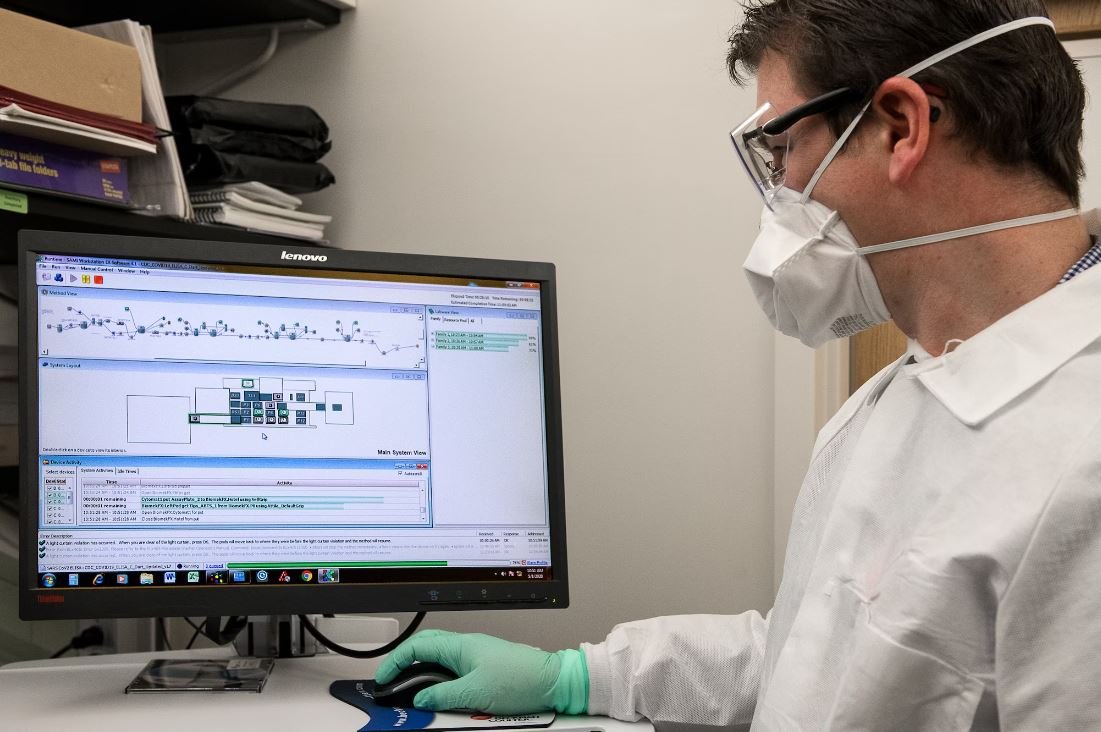Top AI Topics
Artificial Intelligence (AI) is a rapidly evolving field with numerous exciting areas to explore. From machine learning to robotic process automation, AI is revolutionizing various industries and impacting our daily lives. In this article, we will delve into some of the top AI topics that you should be aware of.
Key Takeaways
- Discover the latest advancements in AI.
- Explore the impact of AI technologies in different sectors.
- Uncover the ethical considerations surrounding AI development.
1. Machine Learning
Machine learning, a subset of AI, involves computers learning from data without being explicitly programmed. It enables computers to analyze large datasets and make predictions or decisions based on patterns and algorithms. Machine learning algorithms are utilized in various applications, such as image recognition, natural language processing, and recommendation systems.
*Machine learning models can self-improve and adapt their performance with more data and experience.*
2. Neural Networks
Neural networks mimic the structure and functionality of the human brain, allowing machines to learn and make decisions like humans. They are composed of interconnected nodes, or artificial neurons, that process and transmit information. Deep learning, a subset of neural networks, involves training models with large datasets to achieve high accuracy in tasks such as image classification and speech recognition.
*Neural networks have revolutionized computer vision and speech recognition technologies.*
3. Robotics
Robotics combines AI and mechanical engineering to create machines that can perceive, interact, and manipulate their environments. Robots equipped with AI algorithms can perform tasks in various industries, including manufacturing, healthcare, and logistics. They can assist in repetitive tasks, precision operations, and even provide companionship in the form of social robots.
*Robots are transforming industries by enhancing efficiency and productivity.*
4. Natural Language Processing (NLP)
Natural Language Processing (NLP) focuses on the interaction between computers and human language. It allows machines to understand, interpret, and generate human language in a meaningful way. NLP applications include language translation, sentiment analysis, chatbots, and voice assistants like Siri and Alexa.
*NLP advancements have paved the way for more seamless human-computer interactions.*
5. Ethical Considerations
With AI impacting various aspects of society, ethical considerations have become crucial. Topics such as bias in AI decision-making, privacy concerns, and job displacement are hotly debated. Ethical AI frameworks and regulations are being developed to ensure responsible and fair AI deployment.
*Ethical discussions surrounding AI are essential to ensure a responsible and equitable implementation.*
Interesting Data Points
| Industry | Percentage of Adoption |
|---|---|
| Healthcare | 45% |
| Finance | 39% |
| Retail | 35% |
| Manufacturing | 31% |
| Country | Investment in Billions (USD) |
|---|---|
| United States | 21.6 |
| China | 10.2 |
| Japan | 5.2 |
| Germany | 2.9 |
| Job Title | Annual Median Salary (USD) |
|---|---|
| Data Scientist | $122,840 |
| Machine Learning Engineer | $112,769 |
| AI Research Scientist | $111,257 |
| Robotics Engineer | $94,240 |
The field of AI is continuously evolving, with new breakthroughs and applications emerging regularly. Whether it’s machine learning, neural networks, robotics, or natural language processing, the potential of AI is vast. As AI technologies advance, it is crucial to address the ethical considerations that arise and ensure responsible deployment. Stay updated on the latest AI trends and innovations to unlock the full potential of this transformative field.

Common Misconceptions
Artificial Intelligence (AI) in Everyday Life
One common misconception people have about AI in everyday life is that AI is primarily used in humanoid robots like the ones depicted in movies and TV shows. However, the reality is that AI is already integrated into various aspects of our daily lives, such as voice assistants like Siri and Alexa, recommendation systems on online shopping platforms, and even self-driving cars.
- AI is not limited to humanoid robots.
- AI is already present in voice assistants and recommendation systems.
- AI is increasingly used in self-driving cars.
Artificial Intelligence and Job Displacement
Another misconception about AI is that it will completely replace human jobs and lead to widespread unemployment. While AI can automate certain tasks, it is more likely to augment human abilities rather than replace humans altogether. AI technologies can assist humans in complex decision making, improve efficiency, and create new job opportunities in areas related to AI development and implementation.
- AI is more likely to augment human abilities.
- AI can assist in complex decision making.
- AI creates new job opportunities in AI-related fields.
Artificial Intelligence and Ethics
There is a common misconception that AI is ethically neutral and purely objective. However, AI systems are developed by humans and can reflect the biases and prejudices of their creators or the data they are trained on. It is essential to ensure that ethical considerations, diversity, and fairness are integrated into the development and deployment of AI to avoid reinforcing existing societal biases or discriminatory practices.
- AI systems can reflect the biases of their creators.
- Ethical considerations must be integrated into AI development.
- AI should strive for fairness and avoiding discriminatory practices.
Artificial Intelligence and Superintelligence
One misconception is the belief that AI will inevitably result in superintelligent machines that surpass human intelligence and capabilities. While AI has made significant advancements, achieving superintelligence remains an elusive goal. It is currently unknown whether such a level of intelligence can be achieved or if it poses any existential risk. Discussions around superintelligence often involve hypothetical scenarios that may not align with the present reality of AI.
- Superintelligence is not an imminent outcome of AI development.
- Whether superintelligence is achievable is unknown.
- Hypothetical scenarios around superintelligence may not align with current AI capabilities.
Artificial Intelligence and Data Privacy
Many people assume that AI automatically compromises their privacy by collecting and analyzing personal data. While AI relies on data to learn and make accurate predictions, it is possible to design AI systems that respect privacy and ensure data security. Implementing privacy safeguards, anonymizing data, and giving users control over their data are crucial factors in responsibly deploying AI technologies.
- AI systems can be designed to respect privacy.
- Privacy safeguards can be implemented in AI systems.
- Users can maintain control over their data in AI interactions.

The Rise of AI in Healthcare
In recent years, artificial intelligence (AI) has been increasingly integrated into various industries, including healthcare. AI technologies are revolutionizing the way medical data is processed, providing opportunities for personalized medicine, and contributing to the improvement of patient care. This table highlights the top AI topics in healthcare and their impact.
AI-Powered Virtual Assistants in Healthcare
Virtual assistants equipped with AI capabilities are empowering patients and healthcare professionals by providing instant access to information and streamlining administrative tasks. This table showcases the advantages and applications of AI-powered virtual assistants in healthcare settings.
Impact of AI on Early Disease Detection
Early detection of diseases greatly enhances the chances of successful treatment and improved patient outcomes. AI algorithms are being employed to analyze medical images, identify potential issues, and aid in early diagnosis. This table uncovers the impact of AI on early disease detection and its benefits.
The Role of AI in Precision Medicine
Precision medicine aims to provide tailored treatments based on a patient’s unique genetic makeup, lifestyle, and environment. AI algorithms enable the analysis of large-scale genomic data, accelerating advancements in precision medicine. This table delves into the role of AI in driving precision medicine forward.
AI-Powered Robotic Surgery
Robotic surgery systems driven by AI algorithms allow for greater precision, dexterity, and control during complex surgical procedures. This table explores the advantages and impact of AI-powered robotic surgery on patient outcomes and surgical efficiency.
Machine Learning in Drug Discovery
Drug discovery is a time-consuming and costly process. By utilizing machine learning techniques, AI can analyze vast amounts of data to predict potential drug candidates and streamline the discovery process. This table outlines the applications of machine learning in drug discovery and its potential benefits.
AI-Enabled Remote Patient Monitoring
Remote patient monitoring utilizing AI technologies enables healthcare professionals to remotely track and monitor patients’ conditions, aiding in the early detection of potential issues and reducing hospital readmissions. This table highlights the impact of AI-enabled remote patient monitoring on healthcare delivery.
Transforming Radiology with AI
Radiology plays a crucial role in disease diagnosis and treatment planning. AI algorithms applied to medical imaging are improving radiologists’ accuracy, reducing interpretation time, and enhancing patient care. This table investigates the transformative impact of AI in the field of radiology.
AI in Mental Health Diagnosis
Mental health diagnosis often relies on subjective assessments. AI algorithms can aid in the identification and analysis of patterns in patients’ behavior, providing more accurate and objective diagnostic insights. This table highlights the advancements and potential of AI in mental health diagnosis.
Ethical Considerations in AI Healthcare Applications
As AI increasingly becomes integrated into healthcare, ethical considerations regarding patient privacy, bias, and decision-making accountability are of paramount importance. This table explores the ethical challenges associated with AI applications in healthcare and necessary safeguards.
In conclusion, AI has emerged as a disruptive force in the healthcare industry, transforming various aspects of patient care and medical research. The discussed AI topics, from virtual assistants to precision medicine and radiology, demonstrate the vast potential of AI in improving healthcare outcomes. However, as with any emerging technology, ethical considerations must be carefully addressed to ensure AI is harnessed for the benefit of all individuals involved in the healthcare ecosystem.
Frequently Asked Questions
What is Artificial Intelligence (AI)?
Artificial Intelligence (AI) refers to the development of computer systems that can perform tasks that typically require human intelligence. These systems are designed to learn, reason, and autonomously make decisions based on large amounts of data.
What are the different types of AI?
There are mainly three types of AI: Narrow AI, General AI, and Superintelligent AI. Narrow AI is designed to perform specific tasks and is the most common type of AI today. General AI refers to AI systems that can handle any intellectual task that a human being can do. Superintelligent AI is hypothetical and surpasses human intelligence levels in every aspect.
How does AI learn?
AI learns through a process called machine learning. Machine learning algorithms allow AI systems to analyze and interpret large amounts of data to find patterns and make predictions or decisions. AI systems can also learn through deep learning, which involves artificial neural networks inspired by the human brain.
What are the applications of AI?
AI has a wide range of applications across various industries. Some common applications include natural language processing, computer vision, recommendation systems, autonomous vehicles, robotics, healthcare diagnostics, and fraud detection.
What are the ethical concerns related to AI?
There are several ethical concerns associated with AI, such as job displacement, privacy and data security, biases in algorithmic decision-making, and the potential for AI systems to be weaponized or used for malicious purposes. These concerns demand careful consideration and regulation to ensure responsible and ethical AI development and use.
What is the future of AI?
The future of AI holds great potential for advancements in various fields. AI is expected to continue to impact industries such as healthcare, finance, transportation, and manufacturing. There are ongoing research and development efforts to push the boundaries of AI technology, including the exploration of AGI (Artificial General Intelligence) and the ethical implications associated with its development and deployment.
What are the key challenges in AI development?
AI development faces several challenges, such as the need for vast amounts of high-quality data for training AI systems, the lack of transparency in AI decision-making processes, the potential for AI systems to reinforce biases present in training data, and the ethical dilemma of creating AI systems that may surpass human intelligence.
How is AI being used in healthcare?
AI is being used in healthcare for various applications, including medical image analysis, disease diagnosis, precision medicine, drug discovery, and remote patient monitoring. AI has the potential to revolutionize healthcare by improving diagnostics, treatment planning, and patient care outcomes.
What is the role of AI in autonomous vehicles?
AI plays a crucial role in the development of autonomous vehicles. AI systems analyze sensor data from cameras, radars, and lidars to perceive the surroundings, make decisions based on real-time traffic conditions, and control the vehicle’s movements. AI enables autonomous vehicles to navigate safely and efficiently.
Is AI a threat to human jobs?
AI has the potential to automate certain tasks and job functions, which may lead to job displacement in certain industries. However, AI also has the potential to create new job opportunities and enhance productivity in various sectors. The impact of AI on the job market depends on how it is integrated and managed within different industries and organizations.




